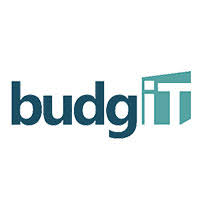BUSINESS
2022 budget: BudgIT Uncovers over N2.4bn Projects Linked to National Assembly Leaders

By Joseph Amah, Abuja
BudgIT, a civic-tech non-profit organisation, has said that projects worth over N2.4 billion in the 2022 budget were directly linked to the leaders of the national assembly. Iyanu Fatoba, communications associate at BudgIT, disclosed this in a statement.
On December 31, 2021, President Muhammadu Buhari signed the N17. 13 trillion 2022 appropriation bill into law.The presidency had submitted a proposed fiscal budget of N16.391 trillion to the national assembly, but the lawmakers later raised it to N17.127 trillion — an increase of N735.8 billion. In the recently released statement, BudgIT said it uncovered infractions and corruption loopholes in the 2022 approved budget by the national assembly leaders.
“In its analysis, BudgIT noticed that some projects linked to MDAs that do not have the mandate to execute them are directly connected to the leadership of the legislative arm of government,” the statement reads. “A case in point is the cumulative allocation of N1.45 billion to the Nigerian Stored Products Research Institution and Nigerian Centre for Agricultural Mechanisation in Ilorin, Kwara State, to construct the “Femi Gbajabiamila Public Junior Secondary School, Itire Ikate”.
“BudgIT notes that both agencies in Kwara state have no expertise in supervising the construction or staffing of a school in Lagos state when the country has a federal ministry of education. “Another case in point is the allocation of N1 billion to the Nigerian Institute of Marine and Oceanography to install street lights in Delta Central Senatorial District, represented by Hon. Ovie Omo-Agege, the deputy Senate President.”
According to BudgIT, the timeframe within which the 6,576 capital projects were generated and inserted into the FG budget by legislators raised the need for concerns.“BudgIT has valid concerns on whether the Project Design Documents (PDD) were created as required by the 2022 Budget Public Investment Guidelines. A poorly designed and costed public sector project is almost destined to fail ab initio and lead to poor value for money for taxpayers,” it added.
“Also, the insertions of these 6,576 projects bloated the budgets of different federal ministries, contributing further to a breach of the budget ceiling safeguards announced by the Budget Office of the Federation on August 19, 2021.”While speaking on capital budget padding, Gabriel Okeowo, BudgIT’s country director, said, “Several projects do not meet the definition for capital expenditures according to the Fiscal Responsibility Act
.“For example, N5.6billion allocated to over 150 Meetings, Conferences, and Board Meetings was listed as capital expenditures across different MDAs. Another case is the N28million allocated to the Federal Ministry of Information & Culture-HQTRS for Quarterly Interaction With Foreign Media/Pr Lobby in its capital budget. “Last week, BudgIT also embarked on consultative engagements with critical institutions and stakeholders in the budget process to galvanise stakeholders into action concerning these infractions.
“Likewise, BudgIT is aware that the budget is currently with the National Assembly for review; thus, we call on the citizens, CSOs, private sector, and the international community to urgently prevail on the National Assembly and Presidency to immediately redress and eliminate these violations in the FG’s 2022 Approved Budget to ensure public funds work for all Nigerians and not for a privileged few politicians.”
BudgIT also urged Nigerians, CSOs, the private sector, the international community, and reformers to join the call for urgent redress of the issues to ensure public funds work for all Nigerians and not for a privileged few politicians.
BUSINESS
PenCom Slams Seven Mortgage Banks for Violating Housing Loans Guidelines

By Tony Obiechina, Abuja
The National Pension Commission has directed Pension Fund Administrators and Pension Fund Custodians to immediately stop accepting or processing equity contribution applications submitted by seven Primary Mortgage Banks over alleged non-compliance with its housing loan guidelines.
This was contained in a circular by the Head of Benefits and Insurance Department, Obiora Ibeziako, and addressed to PFAs and PFCs.
The PenCom circular read, “Following the cited letter, the commission instructs that Pension Fund Administrators, including Closed Pension Fund Administrators and Pension Fund Custodians, immediately stop accepting or processing equity contribution applications submitted by the following Primary Mortgage Banks.
”It listed the affected institutions as Jigawa Savings & Loans Limited, FHA Mortgage Bank Limited, Delta Trust Mortgage Bank Limited, AG Mortgage Bank Limited, Infinity Trust Mortgage Bank Plc, First Trust Mortgage Bank Limited, and Mutual Alliance Mortgage Bank Limited. “Please be guided,” the letter read in part.
According to the spokesman of PenCom, Ibrahim Buwai, the decision followed the failure of the affected mortgage banks to generate the loans for which pension funds had been approved.
He said, “When you have policies like these, you will have rules and guidelines. The whole purpose of giving access to RSA holders is to enable them to own houses through mortgages.
“The whole thing is meant for those who apply and get approved. The monies that get approved are meant to enable them to pay equity through mortgages. So, it was discovered that some of the primary mortgage institutions were not generating mortgages.
“That is just the long and short of it. If that is the case, that means they are not complying with the regulations. That is the reason for their blacklisting.”
The Equity contribution for residential mortgage was introduced in September 2022 by PenCom.
This is the portion of funds that an RSA holder can apply from the RSA balance towards the payment required to secure a residential mortgage. RSA holders are permitted to utilise a maximum of 25 per cent of their RSA balance for this purpose.
As of the end of the first quarter of 2025, about 24,582 RSA holders have benefited from the scheme to the tune of N149.84bn.
Oil & Gas
Nigeria Must Act Fast to Drive Electric Vehicle Adoption – MEMAN

Major Energies Marketers Association of Nigeria (MEMAN) has warned that Nigeria cannot afford to be left behind in the global shift to clean mobility, calling for urgent collaboration to fast-track Electric Vehicle (EV) adoption.
Its Executive Secretary, Clement Isong, gave the warning during an online webinar titled “Accelerating Electric Mobility Adoption in Nigeria by Unlocking Downstream Potential” on Monday.
Isong said that the association had already taken practical steps by installing 12 EV charging and battery-swapping stations alongside five aftersales facilities across the country.
“Collaboration among regulators, investors, and private sector stakeholders is critical to building a viable EV ecosystem in Nigeria.
“MEMAN remains committed to fostering dialogue and innovation in the downstream sector,” Isong said.
He said that with transportation accounting for 28 per cent of Nigeria’s greenhouse gas emissions and rising fuel prices burdening households and businesses.
Director of Operations, Nigerian Midstream and Downstream Petroleum Regulatory Authority (NMDPRA), Dr Mukaila Oseni cited the International Energy Agency’s forecast that the number of EVs worldwide will rise to 145 million by 2030.
“Nigeria must diversify its energy mix, lower transportation costs in the long run, and reduce carbon emissions.
“EV adoption is no longer optional. It is essential,” Oseni said.
He, however, admitted challenges remain: high upfront vehicle costs, weak charging infrastructure, unreliable grid power, and low consumer awareness.
Oseni added that NMDPRA had been reviewing regulatory policies to encourage private investment, technology adoption, and innovative business models.
He further urged stakeholders to leverage the nation’s vast fuel retail network as future charging hubs, while also considering interim options such as compressed natural gas (CNG) and liquefied petroleum gas (LPG) as cleaner alternatives.
The webinar, hosted by MEMAN’s Competency Centre, highlighted financing models, local vehicle assembly, and consumer education as critical tools to make EVs accessible and affordable.
With the world moving rapidly towards electrified transport, participants agreed on one point: Nigeria must act decisively to embed EVs in its energy transition strategy or risk being left behind.
| ReplyReply allForwardAdd reaction |
BUSINESS
FG Bows to NLC Pressure, Appoints Chairman for PenCom

The Federal Government has bowed to the threat of a strike by the Nigeria Labour Congress for not constituting the governing board of the National Pension Commission by appointing Opeyemi Agbaje as the chairman.
The news of Agbaje’s appointment was confirmed by impeccable NLC sources, as well as some industry officials.
At the end of its August 13th meeting, the Central Working Committee of the NLC demanded the constitution of the PenCom Governing Board in line with the law within seven working days.
The NLC also asked PenCom to submit to the NLC a full status report of the funds within these same seven days.Spokesman for PenCom, Ibrahim Buwal, said there was no official confirmation from the presidency yet as to Agbaje’s appointment.
Section 19 of the Pension Reform Act 2014 provides for the establishment of a 16-member Governing Board for PenCom. The Chairman, Director-General, and four full-time Commissioners are to be appointed by the President, subject to confirmation by the Senate.
The remaining ten members are representatives of key stakeholder institutions, including the Nigeria Labour Congress, the Trade Union Congress, the Nigeria Union of Pensioners, and the Nigeria Employers’ Consultative Association, among others.
Meanwhile, the newly-appointed chairman of the pension industry regulator, Agbaje, is the Chief Executive Officer of RTC Advisory Services Ltd (formerly Resources and Trust Company Ltd). RTC Advisory Services Ltd is a strategy and business advisory firm with two main strategic business units-RTC Strategy and Advisory and RTC Policy.
Agbaje has experience in the banking sector. He holds a Master’s degree in Law from the University of Lagos and an MBA from IESE Business School, Spain in 1997. He was previously on the board of the Lagos State Security Trust Fund for two terms between 2011 and August 2019.



















